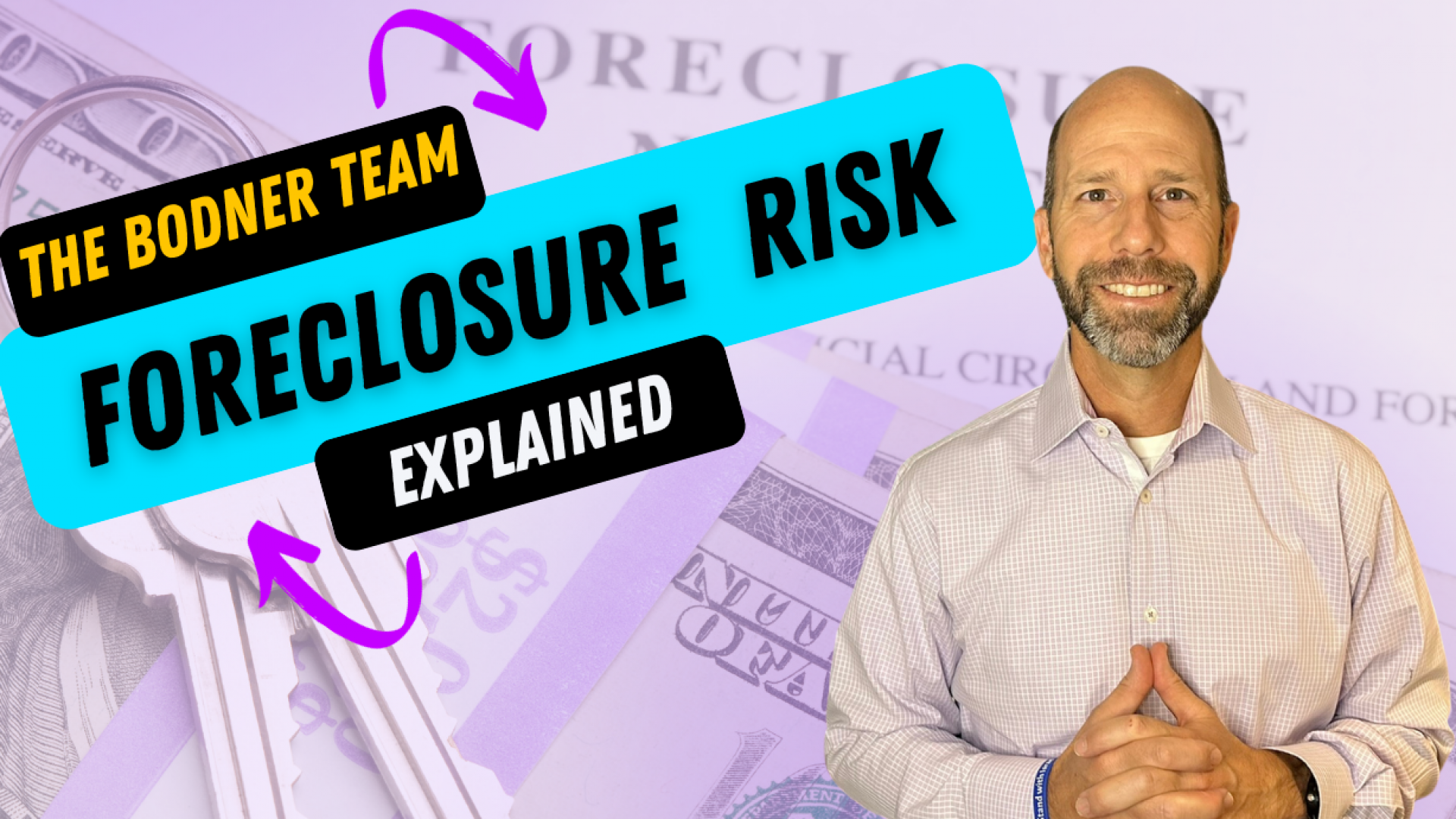Many people believe that reverse mortgages have a higher risk of foreclosure compared to a traditional mortgage (like a 15- or 30-year fixed rate mortgage) or compared to not having a mortgage at all. However, I will tell you that the risks of foreclosure are the same and, in some cases, the risks of foreclosure with a traditional mortgage (which has a mandatory monthly payment), are higher than if you have a reverse mortgage.
So, let’s take a look at the requirements of owning a home. First and most importantly, you are always required to pay your property taxes, even if you do not have a mortgage so the risks of foreclosure if you do not pay your property taxes are ultimately the same when looking at the property taxes. The same is true for HOA dues if your home is in an association or neighborhood that has HOA dues. These are like property taxes; you are required to pay the HOA dues as long as you own the home. If you do not pay your property taxes or HOA dues, you run the risk of foreclosure regardless of whether you have a mortgage or not.
How about homeowner’s insurance? If you have any mortgage, you are always required to maintain homeowner’s insurance. So, in this case, your risks of foreclosure are the same regardless of the type of mortgage. The only time you are not required to have homeowner’s insurance is if you do not have a mortgage. However, having been a victim to the Marshall Fire almost exactly 2 years ago, it is devastating to hear about the folks who lost their homes and did not have any home insurance.
Next, is the requirement to maintain your home. This is once again the same requirement regardless of the type of mortgage you have, traditional mortgage or reverse mortgage. I suppose if you do not have a mortgage, one could argue this is not a requirement. However, if you do not maintain your home, your home will likely depreciate, cause you larger problems and expenses in the future and ultimately may no longer provide a safe place for you to live. So, it is truly in your best interest to maintain your home regardless of whether it is required or not required.
Therefore, the only added risk of foreclosure with a reverse mortgage is the requirement to maintain your home as your principal residence. This is a requirement of all reverse mortgages and is verified annually, simply by the homeowner mailing an Occupancy Affidavit to the loan servicer confirming that the home is still your principal residence. Some loan services are now accepting this Annual Occupancy Affidavit online and some are even accepting your affidavit verbally over the phone.
On the flip side, reverse mortgages do not require you to make a monthly payment of principal and interest. You are always allowed to make a payment, at any time, in any amount, without any penalty at all; but reverse mortgages simply do not require you to make a payment. Therefore, a reverse mortgage provides homeowners flexibility in payment options. However, a traditional mortgage can in fact have a higher risk of foreclosure because you are required to make a payment every single month until the loan is paid off. In some cases, this can require payments for the rest of your life! The payments of principal and interest on a traditional mortgage are required until the loan is paid off regardless of your financial situation, medical situation, or other monthly expenses. This required payment on a traditional mortgage can truly become dangerous and ultimately get older homeowners in trouble financially, especially after losing a spouse and incurring a significant reduction in the household income.
Finally, let’s compare the risks with a Home Equity Line of Credit (HELOC). Many people believe that a HELOC is the best solution to access some of the equity in their home. In general, I am a big fan of HELOCs for younger clients who are still working and have strong income earning potential. However, as we age and our earning potential goes down and we are on a fixed income, a HELOC can be very dangerous. The reasons are because a HELOC is usually an adjustable rate and HELOCs have a draw period and a repayment period. During the draw period, you can draw or take out money from the HELOC and during the repayment period you cannot access any of the funds and you must pay back what you took out. Additionally, during the draw period, the monthly payments are typically interest only payments, then when the draw period ends and the repayment period begins (usually after 10 years), your payments become fully amortized principal and interest payments, again using an adjustable rate. These payments in many cases can increase overnight by $400 or more per month! When you are on a fixed income, this increase in required payments after 10 years can once again be extremely dangerous.
Overall, reverse mortgage lenders do not want to foreclose on your home. Reverse mortgage lenders truly want to help you to age in place, allow you to get access to the equity in your home, and improve your overall cash flow by not requiring you to make mortgage payments of principal and interest. Therefore, the risks of foreclosure are truly the same as any other mortgage, but in fact reverse mortgages can have a lower risk of foreclosure due to the flexibility in payments.





